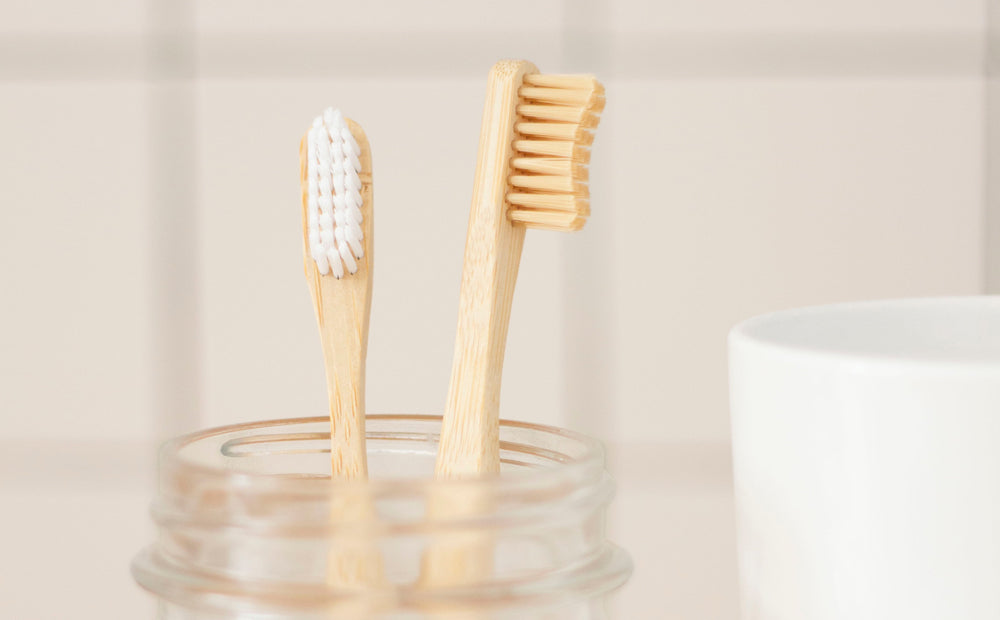Bamboo toothbrushes have gained popularity recently as an eco-friendly alternative to traditional plastic toothbrushes. While they are marketed as sustainable options, they do have some drawbacks. Understanding these disadvantages can help you make a more informed choice when it comes to your oral hygiene and the environment.
1. Not as Biodegradable as Claimed
One of the main selling points of bamboo toothbrushes is that they are biodegradable. While bamboo handles can technically decompose, this doesn’t always happen effectively in modern waste disposal systems. Suppose the toothbrush ends up in a landfill, where oxygen is limited. In that case, the decomposition process slows down significantly, leading to incomplete breakdown and potentially contributing to methane production—a potent greenhouse gas. Additionally, some bamboo toothbrushes are treated with chemical coatings or paints, which further hinder the biodegradation process.
2. Bristles Are Often Made of Nylon
The bristles on most bamboo toothbrushes are still made from nylon, a type of plastic. This means the toothbrush isn't fully compostable, as the bristles must be removed and discarded separately. Even when disposed of correctly, these nylon bristles contribute to microplastic pollution, which is a growing environmental concern. This aspect undercuts the 'all-natural' claim often associated with bamboo toothbrushes.
3. High Water Usage in Bamboo Cultivation
Growing bamboo requires significant amounts of water, especially when cultivated at a commercial scale. Although bamboo is often labeled as a sustainable material due to its rapid growth, the water and land resources used in large-scale farming can lead to environmental issues such as soil erosion and habitat loss. This high water usage contradicts the perception of bamboo as a resource-conserving material.
4. Transportation and Carbon Footprint
Most bamboo toothbrushes are manufactured in Asia, where bamboo grows natively. The carbon footprint associated with shipping these toothbrushes internationally can be significant. This long transportation process contributes to greenhouse gas emissions, which counteracts some of the environmental benefits of choosing a bamboo toothbrush over locally produced alternatives. The energy used in shipping bamboo products across the globe should be taken into account when evaluating their overall sustainability.
5. Potential for Mold Growth
Bamboo is an organic material, so it can be prone to mold growth if not properly maintained. Since bathrooms are often humid environments, a bamboo toothbrush can quickly develop mold on its handle, especially if it isn't stored in a dry, ventilated area. Mold growth on your toothbrush isn't just unpleasant; it can also pose health risks.
6. Durability Issues
Bamboo toothbrushes are generally less durable than plastic or metal alternatives. Over time, the handle can develop cracks or splinters. For some, this wreaks havoc on the corners of their mouth - ouch! Additionally, frequent exposure to water can weaken the bamboo material, reducing its lifespan and necessitating more frequent replacements, which diminishes its supposed sustainability benefits.
7. Chemical Treatments Used on Bamboo
Some bamboo toothbrushes are treated with chemicals to increase their durability and resistance to mold. These treatments can involve synthetic chemicals, paints, or varnishes that reduce the eco-friendly appeal of the product. These treatments can also be a source of allergens for some users, making bamboo toothbrushes unsuitable for those with sensitivities.
Nada Toothbrush: A Better Solution for Sustainability
Given the limitations of bamboo toothbrushes, it’s clear they offer some environmental benefits over plastic toothbrushes, but they are not a perfect solution. For those seeking a more sustainable and durable option, Nada Toothbrush presents an ideal alternative. Nada Toothbrush features an anodized aluminum handle designed to last a lifetime, with recyclable brush heads that can be returned through Nada’s recycling program. This approach eliminates the need for disposable handles and reduces plastic waste, addressing some of the key disadvantages of bamboo toothbrushes.
Why Nada Is a More Sustainable Choice
-
Infinitely Recyclable Aluminum Handle
Unlike bamboo, aluminum is an infinitely recyclable material that doesn’t degrade in quality. The Nada Toothbrush handle is made to last a lifetime, meaning you won’t need to replace the handle, reducing overall resource consumption. -
Recyclable Brush Heads
The brush heads are designed to be easily detached and returned for recycling, reducing waste. This closed-loop approach ensures that the materials are responsibly processed and reused. -
Low Carbon Footprint
Nada Toothbrush is committed to local production (it's made in Canada) and minimizing transportation emissions. By focusing on sustainability at every step, Nada aims to provide a solution that outperforms bamboo toothbrushes in terms of environmental impact.




